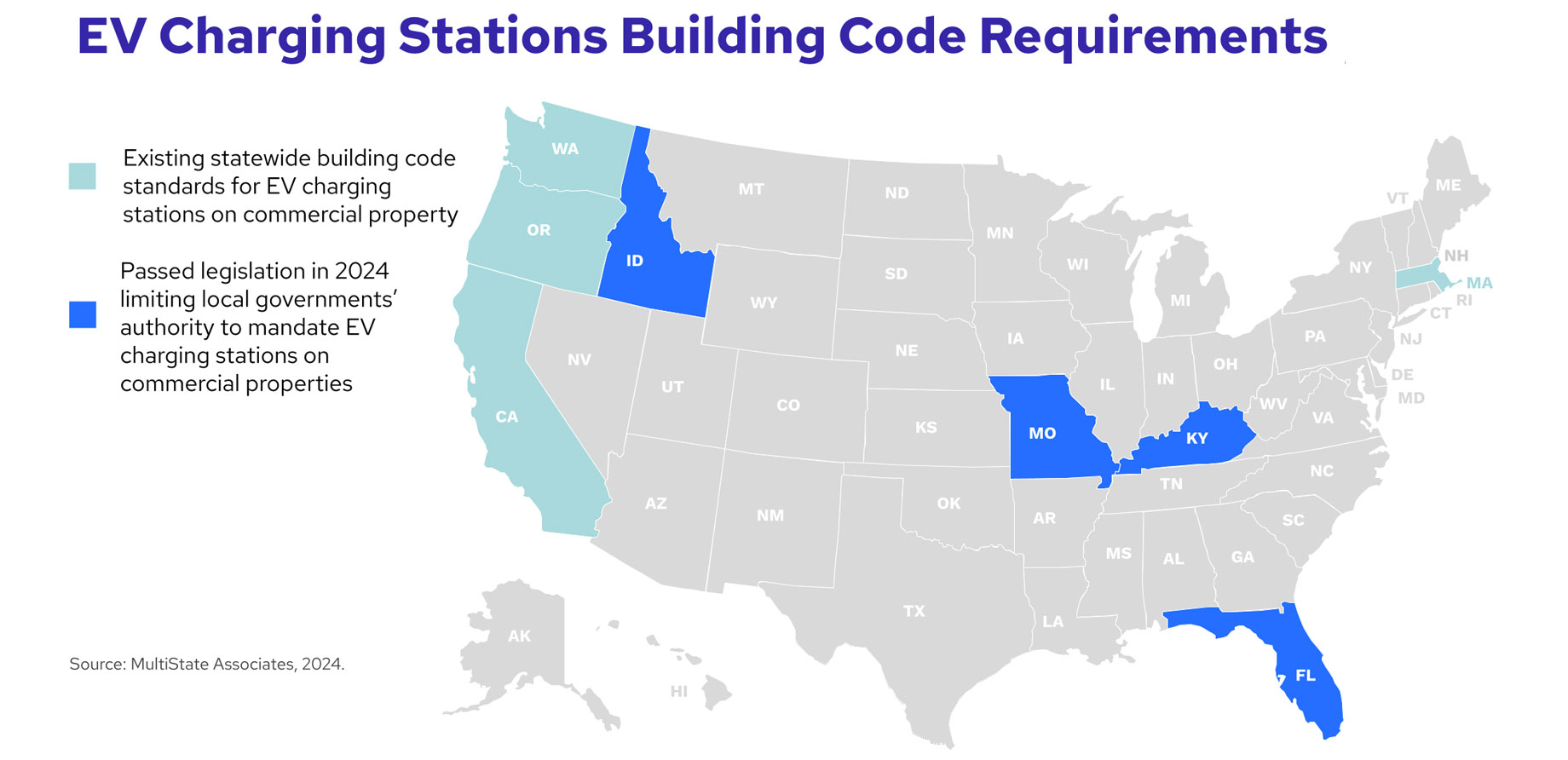State and local lawmakers play a critical role in creating rules and standards for publicly available EV charging stations. Many cities such as Seattle and Oakland have set building code requirements that mandate at least 10% of commercial parking lots be EV-Ready, while places like San Jose, California require 10% of parking spots to have EV charging stations fully installed.
California cities and state regulators have led the charge on establishing standards for non-residential charging rules. For example, the 2022 CALGreen building codes require that new non-residential buildings with over 200 parking spaces have at least 20% of spaces be EV-capable. Massachusetts, Oregon and Washington are the only other states to have set statewide EV charging stations mandates for commercial buildings.
For blue cities in red states, though, the power to regulate charging stations has pushed several Republican lawmakers to introduce measures asserting state control over EV charging stations. Lawmakers in Florida, Idaho, Kentucky, and Missouri have passed legislation this year to limit local authority over setting public charging station requirements. These measures, while not the first examples of local preemption, could mark the beginning of a national trend that positions some states against their local governments in setting rules for EV charging stations on commercial properties.
Florida lawmakers included a provision in a larger bill (FL SB 1084) dealing with the state’s Department of Agriculture to preempt local governments from regulating EV charging stations. The bill, which is still on Governor Ron DeSantis’ (R) desk, could become law even without his signature.
Meanwhile, Kentucky’s Democratic Governor, Andy Beshar, vetoed legislation (KY HB 581) earlier this month that would prohibit local governments from adopting rules that ban gas stations in land-use zones where charging stations are allowed. The bill sponsor, Rep. Ken Upchurch (R), stated he wanted to create an “equal playing field” for EV charging and gas stations. Opponents, however, argue the bill could forbid charging stations from being built at smaller retail stores. Republicans hold a veto-proof majority in both chambers and could easily override the Governor in the last week of session.
Missouri House lawmakers advanced legislation (MO HB 1511) to limit local governments from requiring more than five EV charging stations per parking lot. The bill would also require localities that require EV charging stations at a business location to pay all costs associated with installing charging stations. The bill’s introduction is in response to a 2021 decision by the St. Louis County Council to require developers add EV charging stations to parking lots.
And finally, a Idaho bill (ID HB 704) could prevent any city or county from requiring the installation of an EV charging circuit in new buildings. The bill passed the House in March and now awaits consideration by the Senate. Idaho is set to adjourn their legislative session this week.
As EV sales have shown signs of slowing, supporters of zero emission vehicles have been on the defense. In March, the U.S. Environmental Protection Agency (EPA) issued its final rule on tailpipe emissions that allows automakers to build vehicles with higher emissions as long as the entire fleet meets the new standards, a change from a previous proposal that would have had stiffer requirements on carmakers to produce EVs. The choice of whether or not to buy an electric vehicle has also emerged as a partisan issue with voters. Gallup recently reported that 69% of Republicans now say they would not consider buying an EV versus 61% of Democratic voters who say they would consider buying one.
